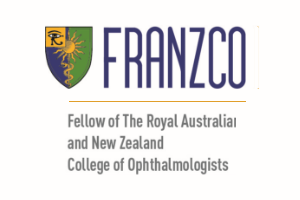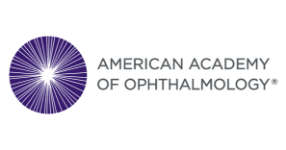Paediatric Eye Surgery
I am paediatric eye specialist looking after both kids and adults, and highly experienced at performing eye surgery for children.
Some babies and infants may require surgery for conditions such as nasolacrimal duct obstruction (blocked tear duct), strabismus (squint) or eyelid cysts.
Congenital cataract and glaucoma are rare, but unfortunately do occur. I have specialised expertise in looking after babies with these conditions.
Some premature babies may have retinopathy of prematurity, requiring laser treatment to preserve their visual potential.
Eye surgery in children is performed at highly specialised operating facilities under general anaesthesia.

Signs that your child may require an eye examination by an ophthalmologist (eye specialist):
- One or both pupils have an unusual or white appearance. This may be noticed in photographs.
- One eye appears to be turned (misaligned) frequently or the eyes do not seem to move together.
- They experience extreme sensitivity to light or glare.
- Their head is consistently tilted/turned to one side.
- They sit close to the television and hold books/puzzles at a very close range.
- Their eyes do not look the same.
What to bring to your appointment?
Please remember to bring the following:
- Referral letter:- from your GP or Optometrist (to claim a Medicare rebate).
- Medicare card, DVA card, Pension Card and/or Health fund card.
- List of current medications including eye drops.
- Any current glasses (for distance or reading).
- Any photos that may identify the problem in your child’s eye/s that you are concerned about.
- Contact details of the child’s paediatrician, and other health care providers.
What to expect during the appointment?
Please allow at least 2 hours to complete your visit. We want to give you the best result, not the quickest one. Depending on your child’s eye problem, additional tests may need to be performed in the office. If it is your first visit, please expect that your child’s pupils will be dilated for a complete eye examination including a detailed study of the lens and retina.
Blogs related to Paediatric Eye Surgery
Understanding Paediatric Glaucoma: Causes, Diagnosis, and Treatment
Paediatric glaucoma is a rare but serious condition that affects the eyesight of children for life. It is distinct from adult-onset glaucoma and requires early …
Astigmatism- Causes, Symptoms, Diagnosis, Treatment & Prevention
What is Astigmatism? Astigmatism is a focusing problem which results in reduced clarity of vision. The word is derived from Greek “stigma” meaning “point”. “Astigma” …
Blocked Tear Duct in Infants- Causes, Symptoms, Diagnosis, Treatment & Prevention
Have you ever wondered about how tears are produced and drained? Tears are produced by the lacrimal gland in the upper outer corner of the …
Amblyopia (Lazy Eye) – Causes, Symptoms, Diagnosis, Treatment & Prevention
What is Amblyopia? Amblyopia, sometimes known as “lazy eye”, is when there is reduced vision (usually in one eye) due to abnormal visual development in …
Invited as keynote speaker for paediatric glaucoma at Dr. Agarwal’s Grand Rounds
Dr Agarwal’s Eye Hospital, established in 1957 in Chennai, now it has 96+ eye hospitals in 11 countries offering quality treatment to their patients. Every …
Dr Parth Shah addressed Ophthalmologists from around the Globe at paediatric ophthalmology WSPOS worldwide webinar
The World Society of Paediatric Ophthalmology and Strabismus (WSPOS)’s fourth edition of the Global Grand Rounds was part of a jam-packed educational weekend on 19th, …
Paediatric Eye Problems & Paediatric Ophthalmologists
Who are Paediatric Ophthalmologists? A Paediatric Ophthalmologist is a qualified ophthalmologist (eye surgeon) specialising in children’s eye care. Not all ophthalmologists are comfortable in dealing …
Myopia in children-an increasing problem in today’s society
What is myopia? Myopia is a condition in which the eye does not focus properly. It is also known as “short-sightedness” or “near-sightedness.” People with …







